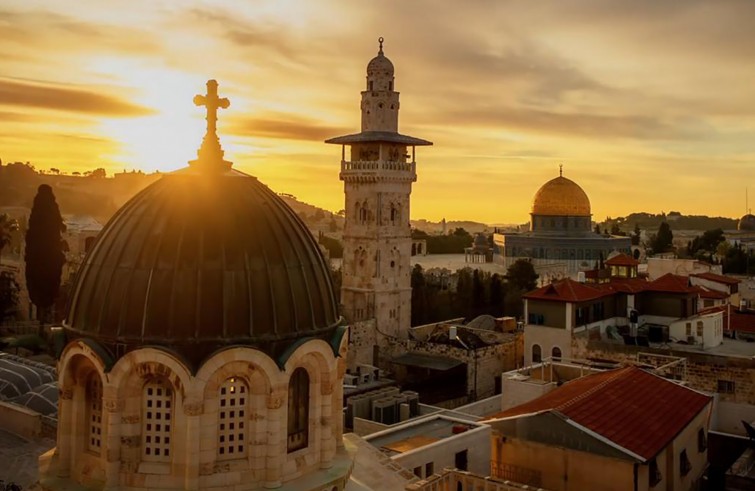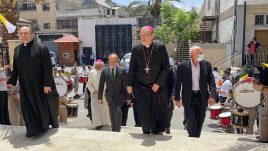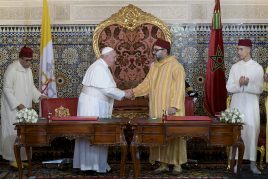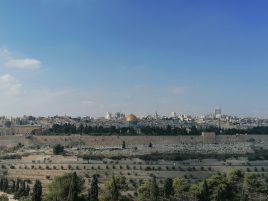
Two years after the meeting in Bari (2020) the Churches of the Mediterranean region resume their commitment to dialogue in Florence, aimed at peace building in a strategic area for the whole world. Sixty delegates from 20 countries bordering the Mare Nostrum will come together in the capital of Tuscany ( February 23-27) to exchange views on the life of the Christian communities in their respective cities with a special focus on the theme of citizenship, the keystone of this second meeting on the “Mediterranean Frontier of Peace”.
 Participants in the event include Msgr. Pierbattista Pizzaballa, Latin Patriarch of Jerusalem, who pointed out to SIR that “the at least a quarter of the world’s richness is concentrated in the Mediterranean region and it is also a crossroads for human migration. It represents a critical junction in terms of political and religious issues that will concern the whole world in the near future.” Building paths of integration and human fraternity is thus of the utmost urgency.
Participants in the event include Msgr. Pierbattista Pizzaballa, Latin Patriarch of Jerusalem, who pointed out to SIR that “the at least a quarter of the world’s richness is concentrated in the Mediterranean region and it is also a crossroads for human migration. It represents a critical junction in terms of political and religious issues that will concern the whole world in the near future.” Building paths of integration and human fraternity is thus of the utmost urgency.
“Whatever occurs in the Mediterranean – including migration, tensions, and violation of human rights – is not the cause but the consequence of these problems. The root causes stem from the domestic situations of Middle Eastern and African countries. If serious problems such as poverty are not tackled first, the situation in the Mediterranean region will remain unresolved.
 Citizenship. Citizenship will be one of the key themes of the Florence meeting. “It’s not a new theme in Church reflection, – notes the Latin Patriarch – suffice it to mention the Special Assembly for the Middle East of the Synod of Bishops in October 2010.” “During the meeting,” Pizzaballa recalls, “citizenship was widely referred to. At the time, Pope Benedict XVI proposed the idea of a positive secularism. The Synod Fathers replied that the concept would not be viable in the Middle East and North Africa and that it would be preferable to refer to citizenship instead. Not much has changed since then. In fact, we have faced several wars, ISIS, and a string of unresolved tensions.” For the Patriarch, “the issue of citizenship in the Southern Mediterranean region cannot be treated along the same lines as in the North, since the respective cultures are extremely different. The term ‘citizenship’ implies equal rights, respect for minority groups, separation of religious and civil spheres. It is worth remembering that these are issues that concern not only Christians but people of all faiths.”
Citizenship. Citizenship will be one of the key themes of the Florence meeting. “It’s not a new theme in Church reflection, – notes the Latin Patriarch – suffice it to mention the Special Assembly for the Middle East of the Synod of Bishops in October 2010.” “During the meeting,” Pizzaballa recalls, “citizenship was widely referred to. At the time, Pope Benedict XVI proposed the idea of a positive secularism. The Synod Fathers replied that the concept would not be viable in the Middle East and North Africa and that it would be preferable to refer to citizenship instead. Not much has changed since then. In fact, we have faced several wars, ISIS, and a string of unresolved tensions.” For the Patriarch, “the issue of citizenship in the Southern Mediterranean region cannot be treated along the same lines as in the North, since the respective cultures are extremely different. The term ‘citizenship’ implies equal rights, respect for minority groups, separation of religious and civil spheres. It is worth remembering that these are issues that concern not only Christians but people of all faiths.”
Common ground. “During the meeting we will have the opportunity to learn from the bishops of countries where citizenship is far from being attained. I think that in Florence we should reach a common position with the aim of pressuring the international community on this matter. We don’t expect to solve the problems, but working together and in alliance with civil authorities such as mayors – who have a solid link with the local communities – will hopefully prompt coordination and common lines of action in the area of citizenship.” “Religions alone cannot solve problems,” Pizzaballa confirmed, adding that “civil society comprises religious, social, economic, cultural and political thought. These are points requiring a concerted approach, especially in the Middle East, where religions play a major role in defining identities and shaping culture.” Another issue is the question of historical memory. The example given by the Latin Patriarch – reiterated at a conference in Milan a few days ago – concerns “our relations with other non-Christian religious communities: how difficult it is still today to have serene relations with Judaism and Islam!”.
“Until the collective memory is purified by all, until the mutual recognition of the harm reciprocally inflicted and suffered is lacking, until, in short, historical relations are not re-examined, the wounds of the past will continue weighing heavily on everyone’s shoulders, acting as a criterion for interpreting mutual relations.”
 “For example, still today in the Holy Land hardly anyone knows how far the Church has come with respect to her relations with Judaism and Islam, and people often think that we are still those of the crusades, persecutions and inquisitions. Inter-religious dialogue can also help unravel these knots, and offer perspectives that are sorely needed but require a long time.”
“For example, still today in the Holy Land hardly anyone knows how far the Church has come with respect to her relations with Judaism and Islam, and people often think that we are still those of the crusades, persecutions and inquisitions. Inter-religious dialogue can also help unravel these knots, and offer perspectives that are sorely needed but require a long time.”
Ensuring continuity. “Events such as those in Bari and Florence,” concludes the Latin Patriarch, “are of great value for forming opinions and providing opportunities to meet with those we never have the chance to see. It is necessary to ensure continuity so that these events are not an end in themselves. But first we must figure out which path to follow and which practical steps can be taken. In this respect, I think that a contact channel could help foster greater communication among us bishops.












